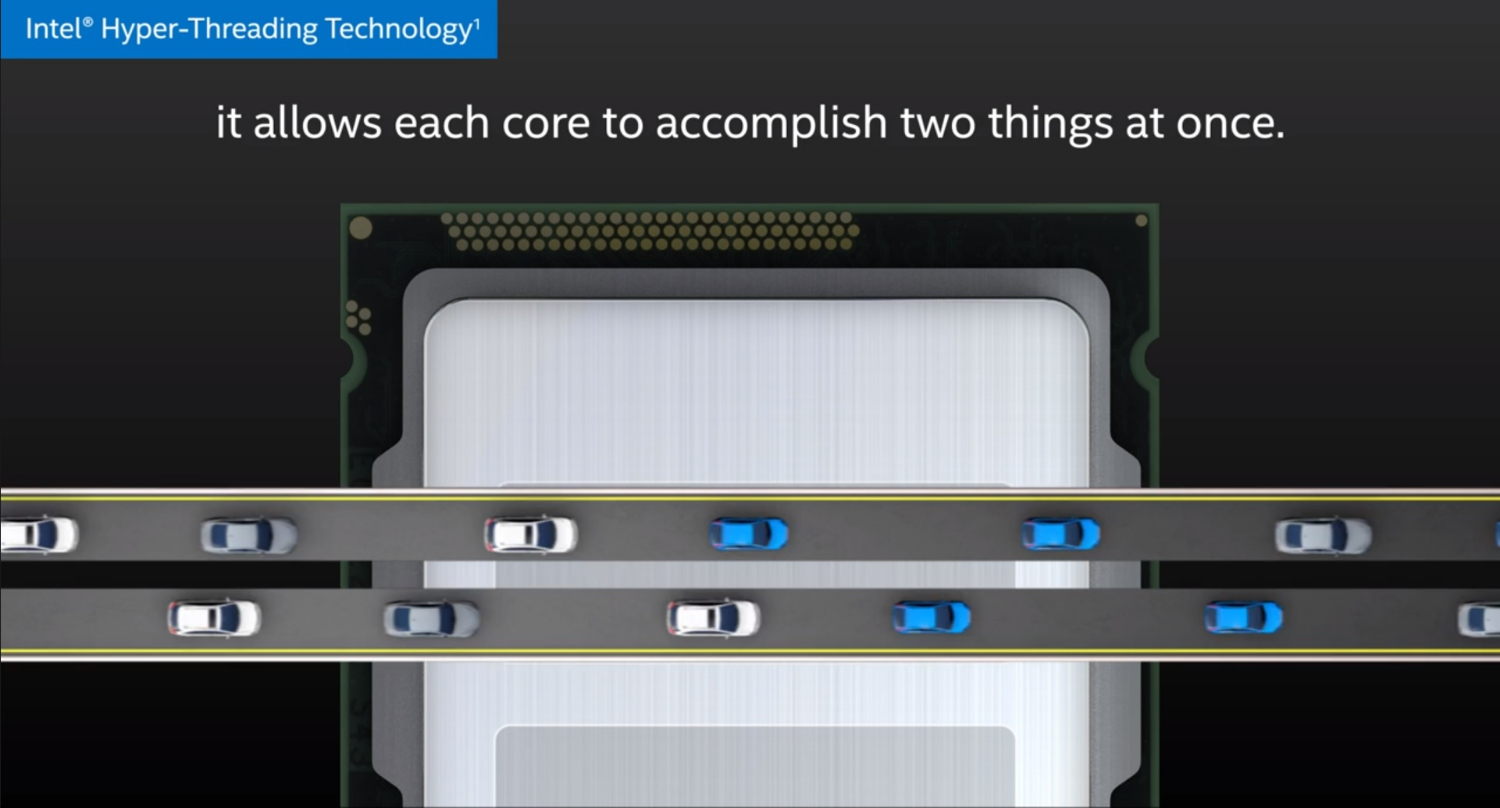What Is Hyper-Threading? A Basic Definition
Get Tom's Hardware's best news and in-depth reviews, straight to your inbox.
You are now subscribed
Your newsletter sign-up was successful
Hyper-Threading is Intel’s term for simultaneous multithreading (SMT). This is a process where a CPU splits each of its physical cores into virtual cores, which are known as threads. For example, most of Intel's CPUs with two cores use hyper-threading to provide four threads, and Intel CPUs with four cores use hyper-threading to provide eight threads.
Hyper-Threading allows each core to do two things simultaneously. It increases CPU performance by improving the processor’s efficiency, thereby allowing you to run multiple demanding apps at the same time or use heavily-threaded apps without the PC lagging.
Hyper-threading is currently available on Intel Core, Core vPro, Core M and Xeon processors. To use Hyper-Threading, you’ll also need an operating system (OS) and BIOS that supports Intel’s hyper-threading technology.
This article is part of the Tom's Hardware Glossary.
Further reading:
- How to Buy the Right CPU
- Best Gaming CPUs
- Best (Non-Gaming) Performance CPUs
- CPU Benchmark Hierarchy
Get Tom's Hardware's best news and in-depth reviews, straight to your inbox.

Scharon Harding has over a decade of experience reporting on technology with a special affinity for gaming peripherals (especially monitors), laptops, and virtual reality. Previously, she covered business technology, including hardware, software, cyber security, cloud, and other IT happenings, at Channelnomics, with bylines at CRN UK.
